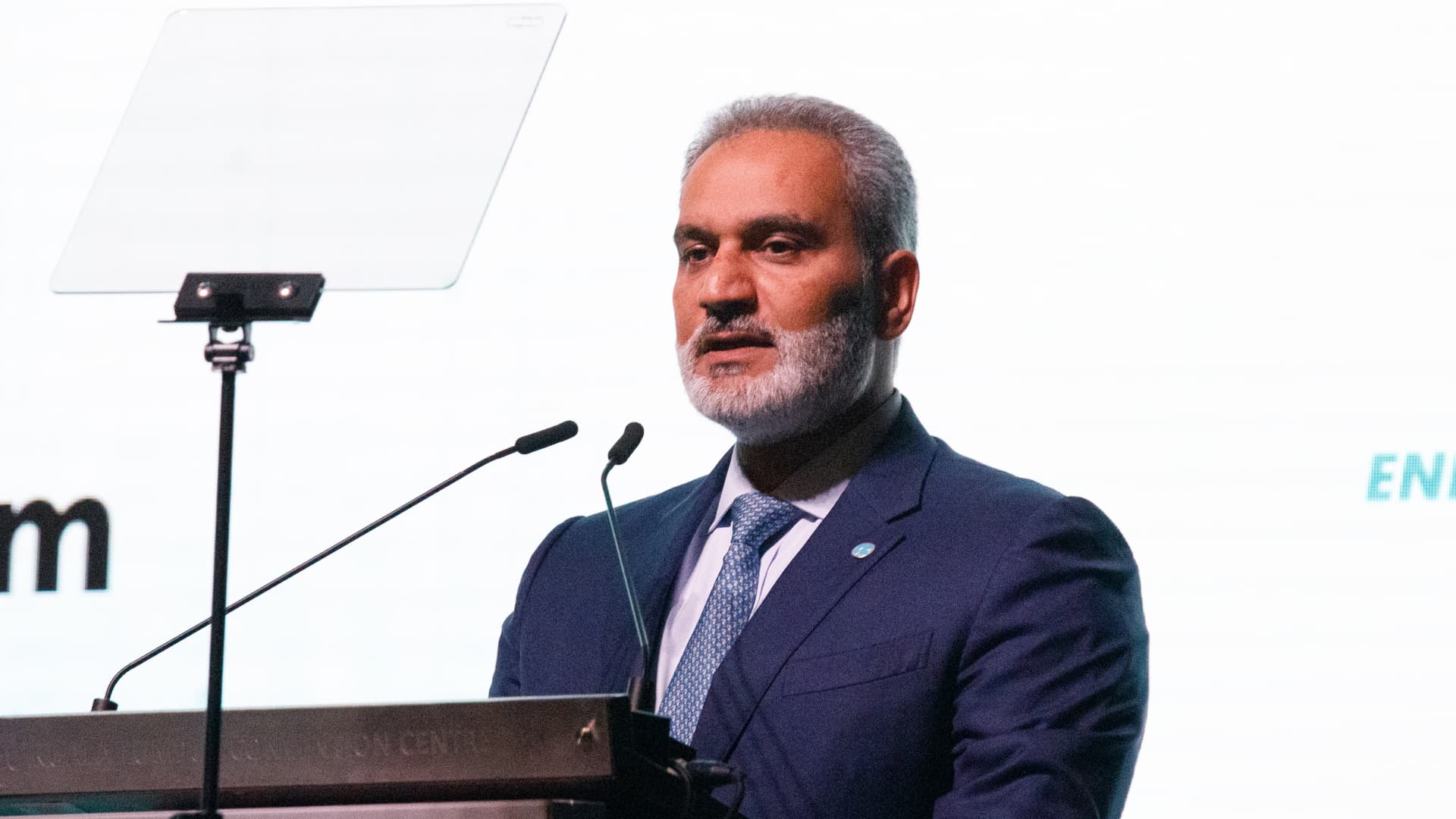Haitham al-Ghais, Secretary-General of OPEC, Signals Alliance’s Openness to New Members
The secretary-general of the Organization of Petroleum Exporting Countries (OPEC) has revealed that the influential producers’ alliance is actively seeking to recruit new members. When asked about expanding the OPEC coalition, Haitham al-Ghais confirmed that he is working towards that goal. Currently consisting of 13 members primarily from the Middle East, North and West Africa, and South America, OPEC is facing the challenge of balancing tighter crude supply in the second half of the year with concerns over macroeconomics and inflationary pressures. OPEC members coordinate their oil production to have an impact on prices.
In 2020, Ecuador left OPEC due to political circumstances, but in May, they received an invitation to rejoin the organization, according to a letter shared by the Ecuadorian Energy Ministry. The letter expressed OPEC’s priority to have Ecuador back as a member, although the response from the Ecuadorian ministry has not been disclosed.
While al-Ghais did not disclose specific names, he mentioned recent visits to oil-producing countries, including Malaysia, Brunei, Azerbaijan, and Mexico. However, he clarified that these visits did not necessarily entail inviting these countries to join OPEC. The possibility of Guyana becoming an OPEC member has been previously speculated, but OPEC stated in late June that, although Guyana is an emerging player in the international oil market, they have not been invited to join.
Al-Ghais stated that the requirements to become an OPEC member include being a substantial net oil exporter with similar goals as OPEC, as clearly mentioned in their statute. He believes that many of the countries he mentioned fit this profile, but it is still a work in progress.
Unanimity and Current Policies
In a press conference after an OPEC seminar in Vienna, al-Ghais addressed reporters and emphasized the unity of coalition members. He highlighted that the voluntary oil production cuts made by some OPEC+ countries do not signify any division within the organization. Al-Ghais appreciated the additional oil production cuts announced by Saudi Arabia, Russia, and Algeria. Saudi Arabia extended its voluntary 1 million barrels per day cut into August, while Russia plans to reduce exports by 500,000 barrels per day the following month. Algeria also intends to decrease production by 20,000 barrels per day in August. These cuts are in addition to the separate set of output reductions made by OPEC+ members from April until the end of 2024.
Talking about the ongoing uncertainty in the oil price landscape, al-Ghais referred to economic concerns, including banking issues in the US, recession fears, and inflation. He also highlighted that the global fight against COVID-19 is not yet over. However, he expressed hope that the second half of the year might bring positive changes, with China opening up more, economic conditions stabilizing in Europe and the US, and a potential settling of the COVID situation.
OPEC officials have repeatedly emphasized the disconnect between supply-demand fundamentals and global oil prices, which have been influenced by banking and economic turbulence. As of now, Brent oil futures for September are up 12 cents per barrel from the previous settlement, reaching $76.77 per barrel at 12:43 p.m. London time.
Focus on Investment and Future Supply
Al-Ghais, along with other OPEC officials, has been advocating for joint investment in both fossil fuel and renewable projects to avoid energy supply deficits. Despite perceiving global underinvestment in hydrocarbons, he believes that the OPEC alliance can effectively tackle potential supply crises. He mentioned that reducing production allows for more spare capacity, which OPEC can utilize in case of any global shocks. However, al-Ghais emphasized that this responsibility cannot be solely shouldered by OPEC and requires collective efforts from all nations.
Suhail al-Mazrouei, the energy minister of the United Arab Emirates, echoed al-Ghais’ views on investment and availability. He emphasized that the focus should be on the level of investments coming into the market to balance the medium to long-term supply, rather than the price. Al-Mazrouei expressed concerns about the medium to long-term supply but did not mention any worries regarding demand.
In May, the International Energy Agency predicted a tightening of market balances in the second half of the year, where demand is expected to exceed supply by nearly 2 mb/d.

